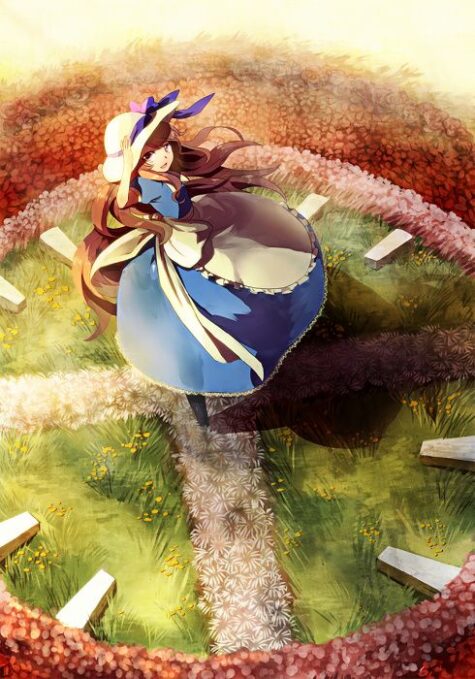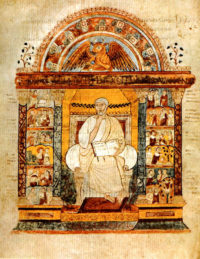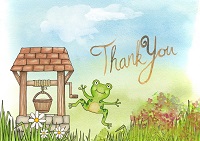How To Really Slow Time Down
Here’s a nice little article that I found really thought provoking. It speaks to how our perception of time seems to speed up as time goes by, why that happens, and what we can do to slow things down. Very interesting.
What we remember as “life” is the aggregation of our various experiences and moments that stretches from childhood to old age. While the minute-by-minute sensations are forgotten, the key moments and experiences — that jolt, change, delight or elevate us — remain long in the memory.
However, a fact of our “remembering” is that not all moments or experiences are remembered equally. Some experiences leave a lasting impression while others don’t. An experience of 10 years ago leaves a more lasting memory compared to one of 8 months ago.
And a strange fact is that we tend to remember more from late adolescence and early adulthood than from any other time in our lives. Various scientific studies have shown that experiences of adolescence to early adulthood tend to take an outsized chunk of our memories. This phenomenon has been called the “reminiscence bump.”
Of this phenomenon, 19th century British Poet Robert Southey wrote:
“Live as long as you may, the first twenty years are the longest half of your life. They appear so while they are passing; they seem to have been so when we look back on them; and they take up more room in our memory than all the years that succeed them.”
Why is that?
The Magic of First Moments
Scientists found that the human brain transcribes novel experiences better than mundane ones. For instance, a 1988 study found that 93% of vivid life memories concern unique or first-time events.
Therefore, the reminiscence bump seems to coincide neatly with the period of life that are stuffed with “firsts” (first relationship, first job, first time driving, first kiss, first child, first time leaving home, first time learning a skill). What happens is that the novelty of these “first moments” create such rich memories that the time of high school, college, and university appears to last forever.
Author Joshua Foer, in Moonwalking with Einstein: The Art and Science of Remembering Everything, writes that adolescence and early adulthood is
“the period that’s the most varied and exciting, that’s when you’re hitchhiking across the country, going on lots of dates, having interesting encounters and learning about things for the first time.”
“You’re going to remember your trip hiking across Peru”, Foer explained, “more that the year you spend sitting in your office doing the same job you’d been doing for the past five years.”
Indeed, most of us know the feeling well, how four years during your forties feel like it zoomed by in a flash. As we grow up and our lives get busier, time seem to fly by faster and faster. But of course, we know time is moving at the same rate as it did during adolescence when the days seemed to stretch out infinitely. So what changed?
Our perception of time.
How We Perceive Time
David Eagleman, a neuroscientist who extensively studied our brain’s perception of time, calls time a “rubbery thing” that changes based on novelty and mental engagement. His profile in the New Yorker, written by Burkhard Bilger, explained:
“This explains why we think that time speeds up when we grow older,” Eagleman said — why childhood summers seem to go on forever, while old age slips by while we’re dozing. The more familiar the world becomes, the less information your brain writes down, and the more quickly time seem to pass. “Time is this rubbery thing…it stretches out when you really turn your brain resource on, and when you say, ‘Oh, I got this, everything is as expected,’ it shrinks up.”
Our brains process familiar information quickly. But when new information is introduced, it takes our minds longer to organize and synthesize the data, making the experience more memorable. The memories made from fresh and exciting experiences are so dense and vivid that they create the perception that time is slowing down.
So, as it happens, the novelty of the “first moments” of early adulthood — where almost everything seems varied, new and novel — (appears to) slow down time and create rich memories. On the other hand, as we get older and get into the rut of routine and fall into predictable patterns with little or no pattern interruption, time (appears to) speed by.
So, how can we apply this knowledge to ‘slow down time’, break life’s monotony and create more enriching life memories?
1. Learn New Things
Learning is said to be “from cradle to the grave” but it’s only so in theory for many people. Many never pick up a book after college, or venture to learn a new skill long after traditional formal education is over. They settle into a comfortable stale routine from which they never escape.
The key however is to never stop learning. Actively seek to be a student of life. Come at everyday with your mind open, ready to squeeze all the learning you can get. There’s a whole lot to learn and life never stop teaching, if we never stop learning.
Go out of your way to harness the magic of more first moments. Read new things, ask questions, try new activities, learn to play a new instrument, cook a new recipe for dinner…
As a child and young adult, you asked questions about everything, you wondered about a lot. And even now at 30 or 50, life continue to reveal it’s beauty if you don’t lose your sense of wonder or stop asking questions.
Life is short, yes, but when you harness the power of first moments, frequently thrusting into the unfamiliar, doing and learning something new everyday, you can make it feel much longer.
2. Visit New Places
Few things have the power to snap us out of life’s monotony or push learning into overdrive than visiting places we’ve never been to before.
When you find yourself treading in the unfamiliar, you tend to pay more attention. And that’s the beauty of it. Your brain is alert, your senses are heightened, you take in new sensations at a rapid rate — you are truly present.
Visiting new places gives your brain the much needed stimulation and you’re forced to break old patterns. You can learn about different cultures, visit places of historical significance, meet wonderful interesting people in a way you’ll never be able to if you’re just reading from a book.
Sometimes visiting new places might not even mean traveling halfway around the world. Even simple things like exploring more of your immediate surrounding, taking new route to work counts, being more aware or conscious of your immediate surroundings helps you create those beautiful, longer-lasting memories.
3. Meet New People
Meeting new people is to come face to face with someone who has experienced life differently than you. Our experiences, memories, perception, worldview are all different. Thus, coming together can be a wellspring of new learning opportunities in a way we might not have even imagined.
And here’s a fact: everybody has something to teach us — even if what not to do.
Meeting new people forces us to slow down, to make more effort to process and understand a different perspective and makes sense of new things like names, facial features, body language, accents etc. And the potential is almost endless: new possibilities, lifelong friendship, and ample learning opportunities.
Summing It Up
What’s the common thread through this examples? Experiencing something new, different, novel. Because the truth is, it’s easy to settle into a routine where life becomes a blur, a hamster wheel of repetition — which tend to make it speed away from us.
The key to slow it down and enjoy enriching experiences is to intersperse routine and predictable patterns with randomness and novelty.
- Try new things.
- Do new things.
- Learn new things.
- Meet new people.
- Visit new places.
That’s how to slow down time and create new meaningful and long-lasting memories.
Source: Jude King
- Radical Self Care Project Overview by shirleytwofeathers - No Comment
- Radical Self Care Image Gallery by shirleytwofeathers - No Comment
- It’s A Wrap by shirleytwofeathers - 3 Comments
- Something To Consider by shirleytwofeathers - 1 Comment
- Nurturing Your Precious Self by shirleytwofeathers - 3 Comments
me: Make Your Own Violet Fire
Abdulrahman: Money Chant – Very Fast
Shirley Twofeathers: It’s A Wrap
Daniel Knirs: It’s A Wrap
Shirley Twofeathers: It’s A Wrap







Leave a Reply